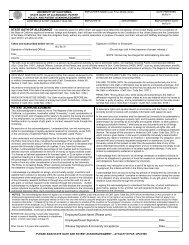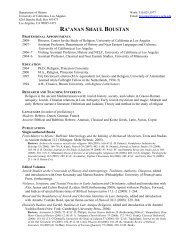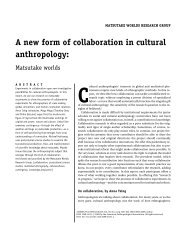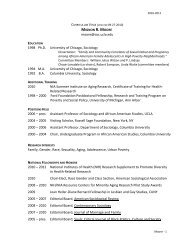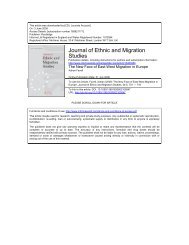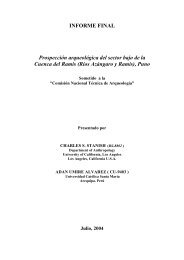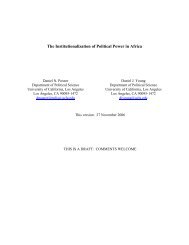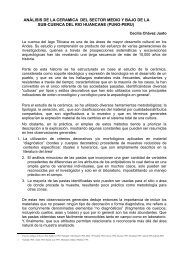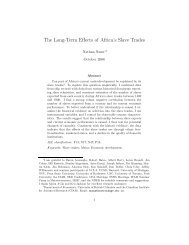433 Chapter Seven Cosmos For the Matsigenka of Shimaa, kameti ...
433 Chapter Seven Cosmos For the Matsigenka of Shimaa, kameti ...
433 Chapter Seven Cosmos For the Matsigenka of Shimaa, kameti ...
Create successful ePaper yourself
Turn your PDF publications into a flip-book with our unique Google optimized e-Paper software.
Commands are issued over and over without any sign <strong>of</strong> compliance, yet everyone continues to<br />
delight in <strong>the</strong> essential charm <strong>of</strong> a small child that, enthusiastically and without embarrassment,<br />
expresses itself and seeks gratification ra<strong>the</strong>r than do what it is told.<br />
The <strong>Matsigenka</strong> seem not at all dismayed by <strong>the</strong> grandiosity <strong>of</strong> small children, <strong>the</strong> ways<br />
in which <strong>the</strong>y keep pressing to do what <strong>the</strong>y want, straining at <strong>the</strong> leash both figuratively and<br />
literally, and issuing demands like imperial majesties while barely able to stand on two legs.<br />
Adults do not automatically gratify willfulness: Some <strong>of</strong> <strong>the</strong> child’s wishes would put it in danger<br />
while o<strong>the</strong>rs would greatly inconvenience <strong>the</strong> operation <strong>of</strong> <strong>the</strong> household. But <strong>the</strong> child is seen<br />
as entitled to want what it wants, and much effort is expended in keeping it happy. When <strong>the</strong><br />
inevitable frustration comes, it takes <strong>the</strong> form, “You can’t have that,” ra<strong>the</strong>r than <strong>the</strong> more<br />
destructive form, “Who are you to want such a thing?”--or still worse, “Why do you pain me so<br />
by always wanting things you cannot have?”<br />
Even when this period ends in <strong>the</strong> storm <strong>of</strong> <strong>the</strong> temper tantrum phase, <strong>the</strong> child’s<br />
outrage is understood and accepted--one might say, forgiven. Earlier, <strong>the</strong> child was not<br />
rebuked for wanting too much, although <strong>of</strong>ten enough it was simply ignored and expected to do<br />
without. Now, <strong>the</strong> child’s grandiose effort to control mo<strong>the</strong>r and fa<strong>the</strong>r is thoroughly frustrated.<br />
But <strong>the</strong> child is allowed to rage against <strong>the</strong> <strong>of</strong>fending parents without too severe consequences.<br />
<strong>Matsigenka</strong> culture, in <strong>the</strong> form <strong>of</strong> tolerant parents, is both accepting <strong>the</strong> child’s right to be angry<br />
at its loss, and encouraging <strong>the</strong> child to give up its outmoded dependence and accept <strong>the</strong><br />
autonomy that lies before it.<br />
This amounts to a cultural acceptance <strong>of</strong> a high degree <strong>of</strong> individual integrity. There is,<br />
for example, a cultural acknowledgement <strong>of</strong> <strong>the</strong> intrinsic impulsiveness <strong>of</strong> human desire,<br />
501




